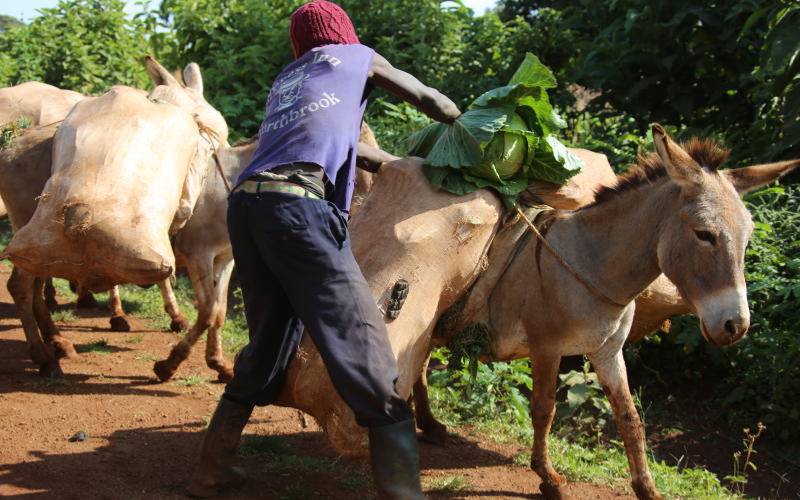×
The Standard e-Paper
Join Thousands Daily

A farmer hawks cabbage on donkeys in Mt. Elgon area in Bungoma County [Chrispen Sechere, Standard]
The donkey is a domesticated member of the Equidae or horse family. According to the Kenya National Bureau of Statistics, there were 1.17 million donkeys in 2019, while in 2009 they were 1.8 million.